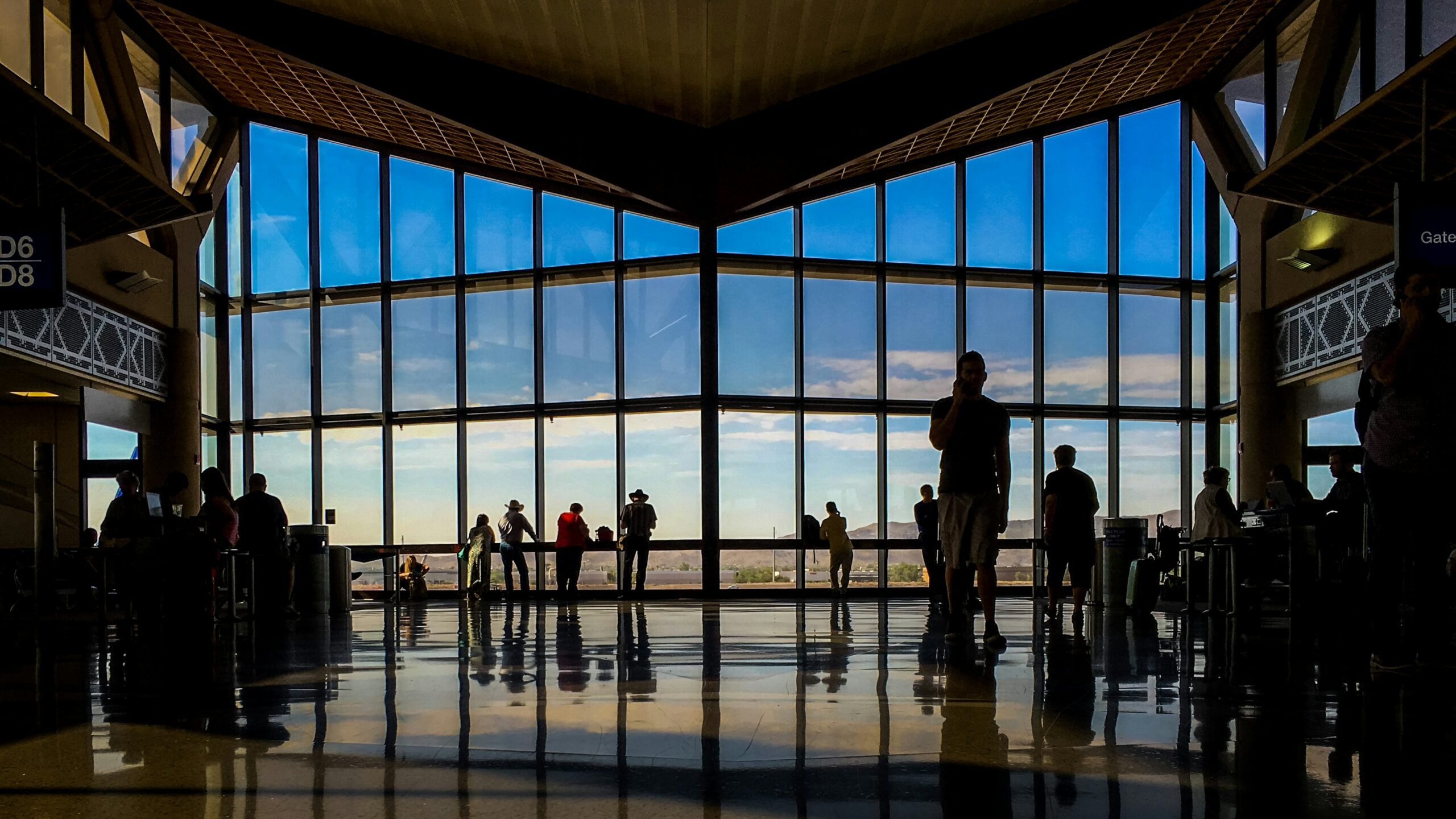Dutch Government Scraps Amsterdam Schipol Flight Cap Amid Global Backlash
The U.S. had hinted at “countermeasures” as the plan would have forced American carriers to cut flights
by Lauren Smith
November 17, 2023
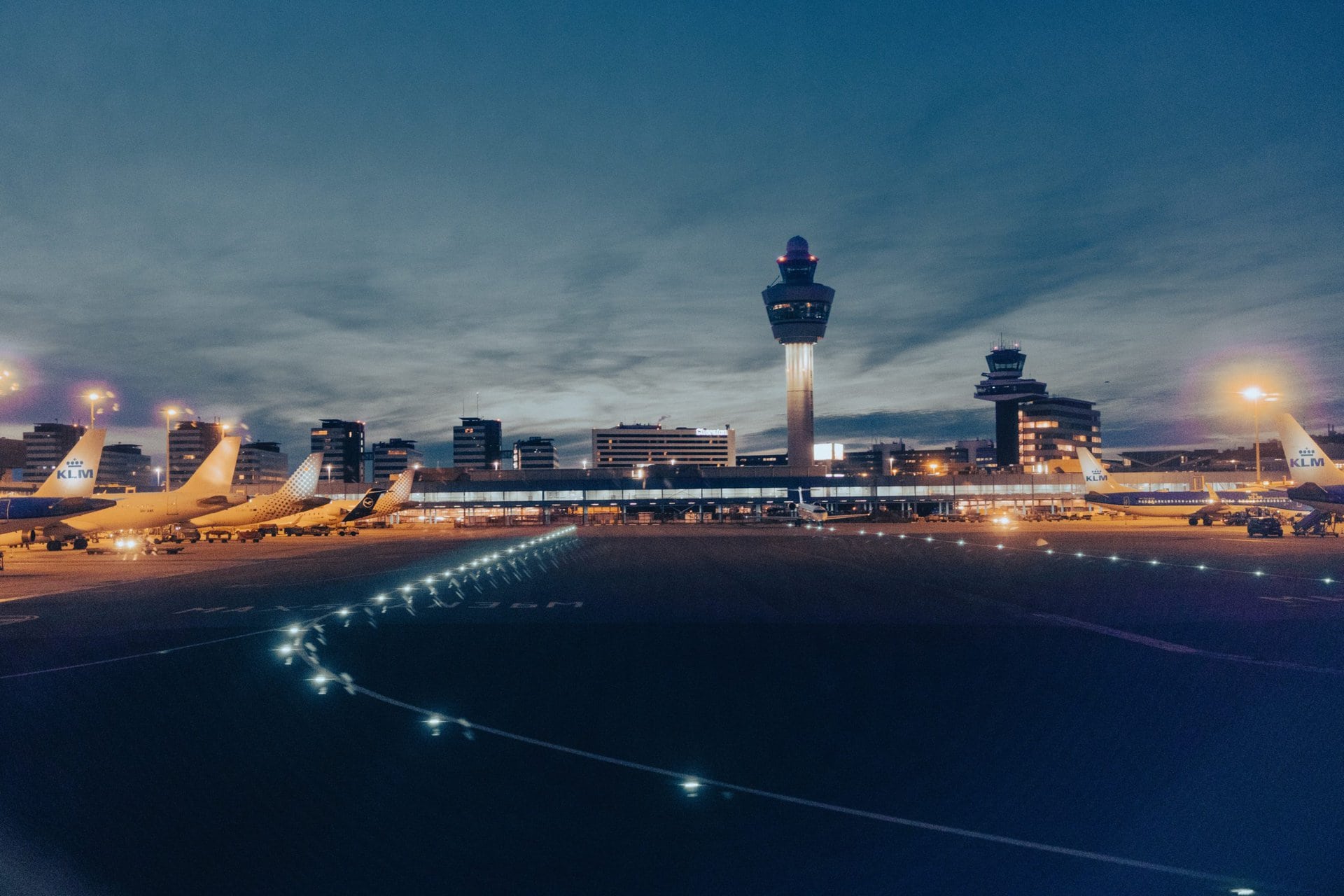
Photo: Amsterdam Schiphol Airport. Courtesy of Rita Candeias / Unsplash
Due to pressure from airlines, the European Commission, and overseas governments, the Dutch government is retracting its proposal to limit the number of flights through Amsterdam’s Schipol Airport (AMS), a setback for neighboring residents and environmental organizations.
Infrastructure minister Mark Harbers announced the reversal in a letter to the Dutch parliament on Tuesday, stating that the decision is a “bitter pill to swallow.”
The U-turn followed an intervention by the U.S. Department of Transportation (DOT), which earlier this month approved a complaint brought against the Dutch government and E.U. by JetBlue and industry group Airlines for America (A4A) over the removal of landing slots at Schipol next summer.
The DOT said that capacity reduction would be “unjustifiable and unreasonable” and in violation of the U.S.- EU Air Transport Agreement.
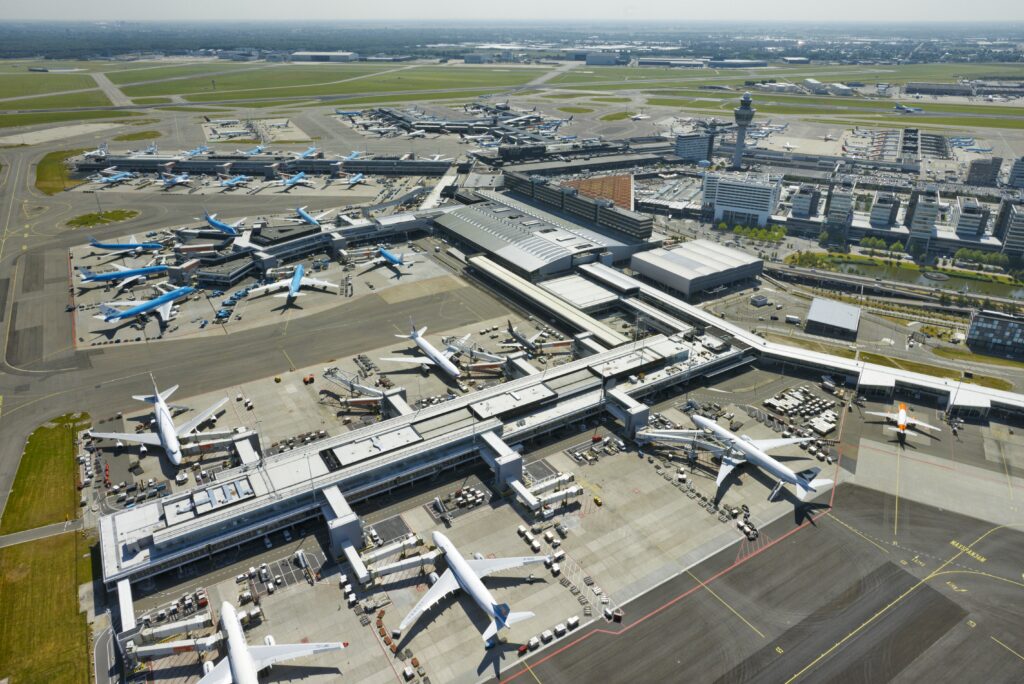
Photo: Courtesy of Amsterdam-Schiphol. Airport
Harbers said the order from the DOT “is the first step in the US taking countermeasures” against the Netherlands. That could include restricting flights into the U.S. by Dutch airlines, including KLM.
Harbers also acknowledged that the European Union had “conveyed serious concerns” about the plan, and the Canadian government also expressed its opposition.
The Dutch government had outlined plans to slash aircraft movements at Schipol, the majority owner, by 8 percent from 2019 levels from next summer.
That meant airlines would be forced to cull 9,070 flights from their schedules over the summer season, including the equivalent of 23 flights per day from Dutch flag carrier KLM.
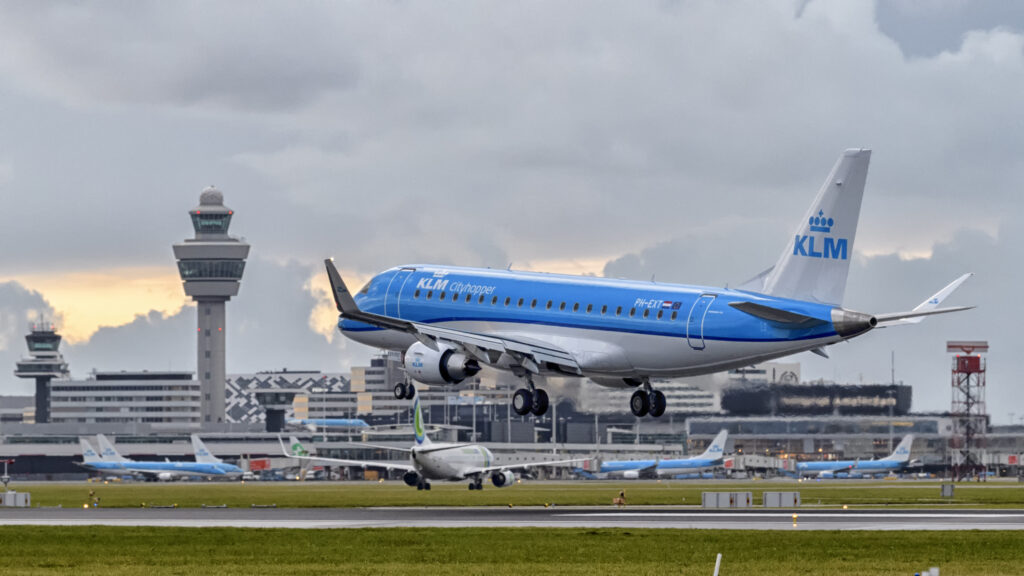
Photo: Courtesy of Amsterdam Schiphol
A4A said that U.S. airlines would lose 339 landing slots at AMS. JetBlue, which recently launched flights to Amsterdam from Boston (BOS) and New York City (JFK), would be locked out of the airport entirely.
While the flight cap was explicitly proposed to reduce the airport’s impact on its neighbors in the densely-settled Amsterdam suburbs, in the form of noise pollution and nitrogen oxide emissions, it was seen as a possible harbinger of future flight restrictions to tackle global warming.
KLM has been vehemently opposed to the measures and insisted that it could reduce noise pollution and emissions at Schipol without reducing flight numbers, including by phasing out middle-of-the-night flights and swapping aging Boeing 737s for quieter, more efficient Airbus A320neos and A321neos.
The carrier said in a statement that it is “satisfied that the Dutch government has decided to suspend the experimental rule for next year.”
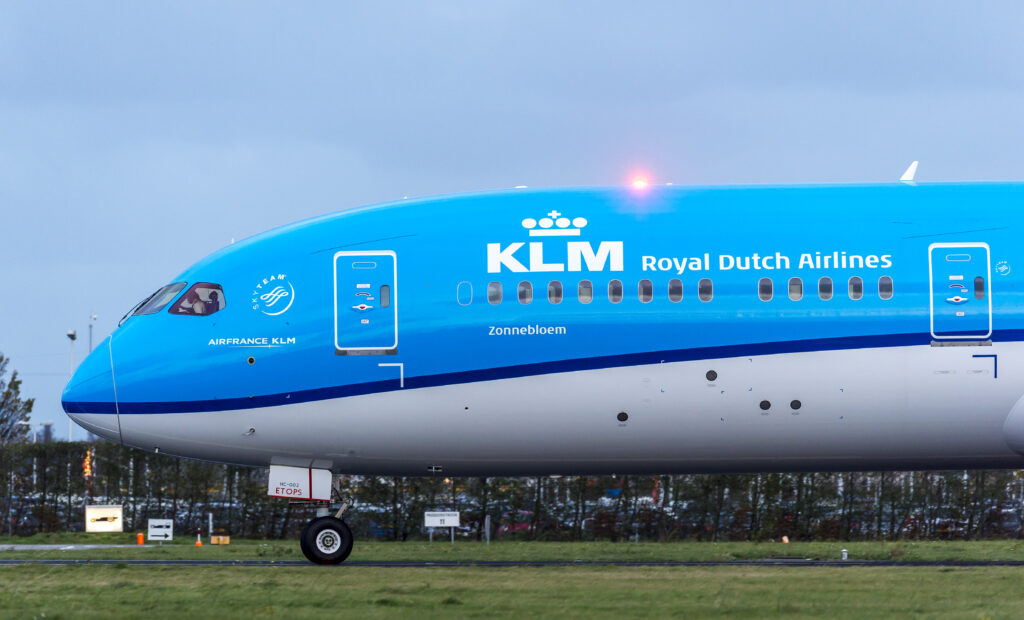
Photo: Boeing 787-9 Dreamliner. Courtesy of KLM.
“It is an important step to prevent retaliation and to continue flying to the U.S. In addition, the European Commission has sent a clear signal to go through a careful legal process according to the balanced approach,” the airline continued.
Willie Walsh, director-general of the International Air Transport Association (IATA), “welcomed this outbreak of common sense from the Dutch government.”
“Maintaining Schiphol’s capacity is good news for jobs, the economy, traveler choice and convenience, and better trade relations,” he added.
Schipol said it was “disappointed… local residents are getting the short end of the stick.”
“Reducing the number of flights is not a goal in itself for us, but the experimental ruling did provide clarity and certainty for local residents,” the airport said in a statement.
Harbers maintained that the Dutch government is “committed to restoring the balance between Schiphol and its living environment.”
